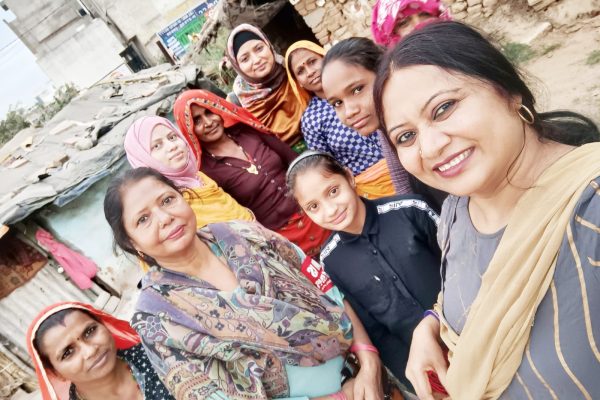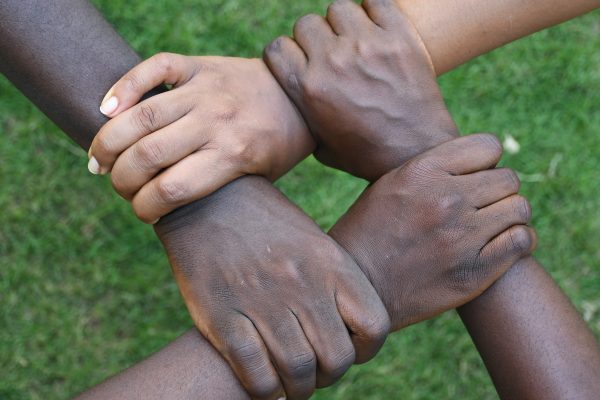Every year, on June 14th, World Blood Donor Day is celebrated globally, emphasising the critical need for voluntary blood donations. Who Is Hussain, a global humanitarian organisation, urges individuals to participate in this life-saving act by becoming blood donors. Their record-breaking initiative, Global Blood Heroes, which took place in August 2022, galvanised more than 37,000 individuals worldwide on a single day to donate blood. Through this, upwards of 110,000 lives were saved.
By joining hands and donating blood, we can make a tangible difference in the lives of countless individuals in need. In this blog post, we will explore the benefits of blood donation, the significance of this day, and provide valuable information about blood donation processes.
What are the benefits of blood donation?
Blood donation offers numerous benefits, both to the donor and the recipient. For donors, it provides an opportunity to give back to the community and make a positive impact on the lives of others. Moreover, donating blood has been linked to potential health benefits such as reduced risk of heart disease, lower cholesterol levels, and the stimulation of the body’s natural blood cell production.
What impact can blood donation have?
The blood donated by generous individuals plays a vital role in healthcare systems worldwide. It is used in various medical procedures, including emergency transfusions, surgeries, and treatments for patients with blood disorders, cancer, anaemia, and other serious conditions. Blood components, such as red blood cells, plasma, and platelets, are carefully separated and used based on specific patient needs. Without regular blood donations, medical professionals would struggle to provide optimal care and treatments to those in need.
Can you donate blood?
Blood donation systems vary across different countries. Let’s look at the United Kingdom, the United States, and Tanzania to see the differences in the eligibility in each country, taking a closer look at how the process works in these three regions.
In the United Kingdom, the National Health Service (NHS) Blood and Transplant organisation manages the blood donation system. To be eligible to donate blood in the UK, individuals must meet certain criteria, including age restrictions (between 17 and 66 years old, with exceptions for individuals aged 70 and above who have donated in the past two years), a minimum weight requirement (at least 50 kg or 7 stone 12 lbs), and good health on the day of donation. Various types of blood donations are available, including whole blood, plasma donations, platelet donations, and double red cell donations. The process involves registration, a health check, the actual donation, and a brief period of rest and refreshments afterwards.
In the United States, blood donation systems are typically managed by organisations like the American Red Cross. Eligibility criteria may differ from the UK, and potential donors are often required to meet age, weight, and health requirements. Different types of blood donations, such as whole blood, platelets, plasma, and double red cell donations, are accepted. The process involves registration, a health screening, the actual donation, and post-donation care.
In Tanzania, the Tanzania National Blood Transfusion Service (TNBTS) oversees the blood donation system. Eligibility criteria, including age, weight, and health requirements, may differ from the UK and the US. Blood donations in Tanzania can be categorised as whole blood or specific component donations. The process typically involves registration, a health assessment, blood collection, and appropriate post-donation care.
Now let’s look more closely at what steps are involved in donating blood, specifically in the UK, where measures are more stringent than in other places worldwide.
The Process of Donating Blood in the UK:
- Registration: Potential donors can register online on the official website of the NHS Blood and Transplant or by calling the donor helpline.
- Health Check: On the day of donation, donors undergo a confidential health screening, including a questionnaire and a quick medical examination.
- Donation: The donation process typically takes around 10 minutes. Approximately 470ml (just under a pint) of blood is collected, which is then safely stored and processed.
- Refreshments and Rest: After donation, donors are provided with refreshments to replenish fluids and are advised to rest for a short period before resuming normal activities.
As World Blood Donor Day approaches, Who is Hussain invites individuals from all corners of the globe to become part of this lifesaving endeavour.
With numerous volunteer teams organising blood donation drives as part of their repertoire over the past decade, these have increased significantly since the successful Global Blood Heroes campaign. More notably, teams in Lebanon, Australia and Uganda broke national records through their provision of the blood donation service.
By donating blood, you can contribute to the betterment of society, offer hope to those in need, and embody the spirit of selflessness and compassion, everything Hussain ibn Ali stood for.
Remember, a single blood donation can save up to three lives, making a profound impact on individuals, families, and communities worldwide.
Join Who is Hussain and countless others on June 14th and beyond to celebrate World Blood Donor Day. Let us unite in our efforts to save lives, improve healthcare, and make a lasting difference.
Together, we can create a world where every person in need has access to the lifesaving gift of blood.
For more information and to get involved, visit www.whoishussain.org.




